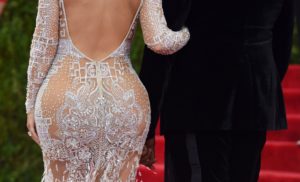If you are a late millennial or early Gen Z-er, life is probably quite hard right now. Chances are that you can’t afford to buy your own home, or even go out socialising that much. Perhaps you can’t avoid feeling guilty either: for eating meat, failing to recycle, having immoral ancestors, using the wrong words. And you almost definitely can’t get off your phone. It’s not all bad news, though. No matter what your material or biological circumstances, there is at least one thing you definitely can do. You can become a lesbian.
Such is the message of Robyn Exton, CEO of lesbian dating app HER, mostly aimed at 20-to-30-somethings. Robyn is very enthusiastic about the cause of lesbianism for all. Last week, in honour of Lesbian Visibility Day, she wrote a combative statement on her business’s website, asserting that attempts to confine the category of lesbians to “only those assigned female at birth” involves a “twisted and erroneous” belief “about what being a lesbian can or cannot entail”. “The future of lesbian is trans”, she continued, before declaring: “we must all affirm trans and nonbinary lesbians… we must all become better informed and put in the work”. She concluded: “On Lesbian Visibility Day, let’s ensure that all lesbians are seen, celebrated, and embraced — regardless of their gender. There’s no such thing as a ‘real lesbian’.” Later, she sent out a message to all users to delete the HER app if they disagreed, and made a TikTok video to the same effect.
Based on an Ellen episode drawing on popular stereotypes about voracious lesbians stealing men’s wives, there’s a joke that whenever you recruit enough women to the sapphic cause, you win a toaster. Exton seems to think she can win a toaster for her preferred version of lesbianism by hurling insults at the unconvinced. If you fall into this category, she suggests, you are a “irrelevant has-been lez-bean”, a “fascist”, a “transphobic bigot full of hatred”, and a “sad, hateful clown”. As seduction techniques go, it’s a bold one.
By redrawing the maps of womanhood and manhood, so fundamental to human life in numerous ways, transactivists such as Exton have redrawn several other maps. One of these represents sexual orientations — heterosexual, homosexual, bisexual — once understood as involving distinctive patterns of attraction between the biological sexes by definition, but now no longer. Ignoring everything that we know about human sexuality, primary and secondary sex characteristics are now treated as the negligibly important physical wrapping for the irresistibly hot gender identities pulsing away within.
According to this demented sexual metaphysics, if a male identifies as a woman and is also attracted to women, he counts as a “trans lesbian” — which also means he is a lesbian, and you had better not object to him popping up in the app you just paid for. The head of Stonewall, Nancy Kelley, agrees; the difference between female and male “lesbians” is now treated by LGBTQ+ authority figures as no more important than the difference between Scottish and English ones.
Queer culture still allows you, a hapless female seeking females, the right to reject any given “trans lesbian” purely on individual grounds of preference or taste. Maybe you don’t like his politics, or shade of lipstick, or something. This is treated as a straightforward matter of consent. But woe betide you if you reject him on the grounds that he is the wrong sex, or otherwise indicate on your dating profile that you only want to have sex with females, accurately construed. In the latter case, you are likely to get banned from whatever queer app you are using — as you also would be for using the pronouns I just used, for the sake of clarity.
In theory, the map of sexual orientations should get redrawn for each orientation equally, but in practice it has been altered for lesbians most of all. Swiping through the apps and looking for love, you are now bound to come across photos of what are obviously adult human males, dressed extravagantly in florals and hairclips, adopting the sort of girlish head-tilts last seen on Shirley Temple in the Forties. “Putting in the work” to “affirm” these people, as Exton grimly urges lesbians to do, mostly involves dating and sleeping with them.
Many “trans lesbians” are autogynephiles, for whom the adoption of a lesbian identity can be added to a long list of fetishised pleasures about womanhood. To those who are not chronically naïve, there’s no mystery as to why fetishists would do this; but it is a mystery why so many lesbians, in the old-fashioned sense, seem delighted to collude with them. Why are they so keen to try to bully and shame female peers into sleeping with males with the right pronouns? The number of people who identify as “LGBTQ+ women” vastly outnumbers that of same-sex-attracted females, so it probably makes sense for a business like a dating app to cast its net as widely as possible in order to maximise the number of potential consumers. But this can’t be the explanation for everyone.
One underappreciated strand of the current discourse about lesbianism seems to be the weird idea floating about that committing yourself to loving females, as a female yourself, is some sort of moral vocation. Effectively, Exton and Kelley are acting as if, once you have come out as a lesbian (however that’s defined), you then have some moral duty not to sexually reject any woman (or “woman”), simply on the grounds of her womanhood. If you can appeal to some other less sweeping and more individual personal preference to get yourself off the hook, that’s different.
Now, you can argue with their underlying account of womanhood — and I do — but you can also disagree with the implication that being a lesbian ethically commits you to a “no woman left behind” attitude, at least in theory. In fact, morality has nothing to do with it. If, as a woman yourself, you do ever end up sexually rejecting another woman simply because she is a woman — and for no other reason — then you haven’t failed morally, though you might have just ceased to be a lesbian.
To conceive of your sexual orientation as a kind of missionary work may seem strange — and perhaps especially so to many heterosexuals — but it is also shored up by a popular contemporary conception of desire. In this view, sexual desires can be morally criticised and potentially perfected. This is not the mundane claim that you can choose not to act on deviant fantasies. Rather, it’s the idea that, simply on ethical grounds, you can work hard to breathe fire into your loins where there was none previously; or alternatively, extinguish it altogether. As a result, gay men should stop wanting “no fats, no femmes” on Grindr; black men should desire black women more often; it is wrong to feel sexual repulsion simply on grounds of weight; and so on.
Ironically, early adopters of the idea that desire could answer directly to one’s conscience were so-called “political lesbians”, arguing that any woman could become a lesbian in theory, and urging straight women to do so on the ethical grounds of fighting the patriarchy. Popularly understood as the idea that you could choose to feel aroused by a woman on political grounds, this is daft. Generally speaking, you can’t berate yourself into feeling turned on by something or someone that would otherwise leave you cold — unless, of course, berating yourself is already your kink.
In often conflict-filled discussions of the validity of political lesbianism, it’s sometimes assumed that there are only two choices — “born this way” or choice – and if the idea of a single genetic determinant is false, then your sexuality must be freely chosen. But that’s a false alternative. There is no single gay gene, and sexuality can and obviously does have environmental causes. But it doesn’t follow that you can choose what to like or not like in bed. You can’t choose your environment, and you can’t choose its complex effects on you. Yes, you might decide to leave your husband and shack up with a woman in order to stick it to the patriarchy. But you can’t choose what you’ll feel when she touches you.
Such points seem lost on the likes of Exton and Kelley, pointlessly and destructively intent on converting lesbians out of their homosexuality by shaming them into sleeping with males as a form of charity work. I’ve no doubt that, as a result of such pressure tactics, some lesbians will end up in bed with males. But they won’t like it. That fact of them not liking it is neither a moral victory for lesbianism, nor is it a defeat. It’s a simple description of lesbian sexuality. And if they do end up liking it, they probably aren’t lesbians.
Disclaimer
Some of the posts we share are controversial and we do not necessarily agree with them in the whole extend. Sometimes we agree with the content or part of it but we do not agree with the narration or language. Nevertheless we find them somehow interesting, valuable and/or informative or we share them, because we strongly believe in freedom of speech, free press and journalism. We strongly encourage you to have a critical approach to all the content, do your own research and analysis to build your own opinion.
We would be glad to have your feedback.
Source: UnHerd Read the original article here: https://unherd.com/




